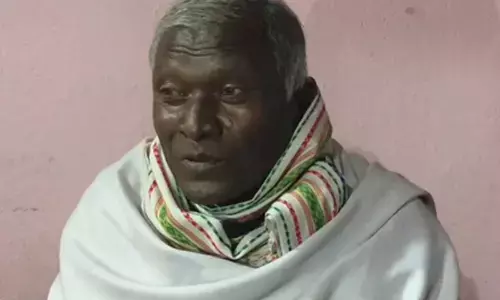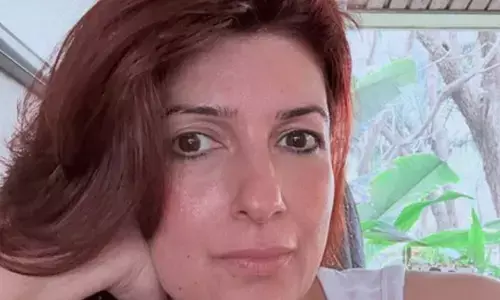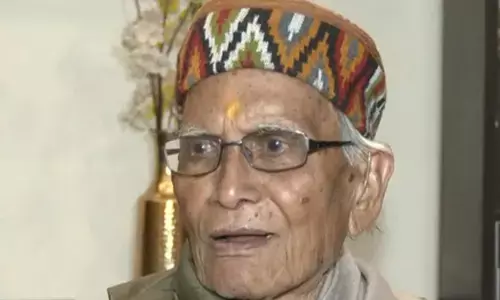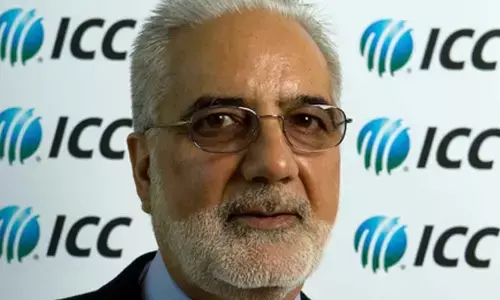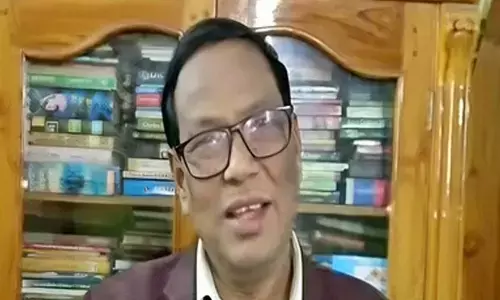Venkaiah roots for primary education in mother tongue
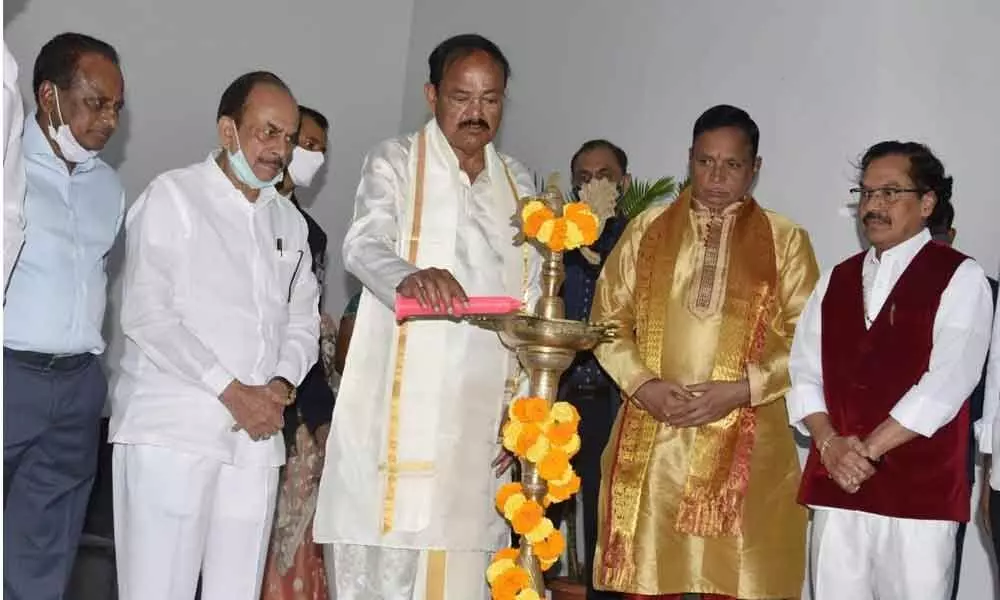
Venkaiah roots for primary education in mother tongue
Learn as many languages as possible, along with strong foundation in first language
Muchhinthal: Vice President M Venkaiah Naidu on Sunday called for making mother tongue the primary medium of instruction, at least until Grade 5. He suggested that educating a child in a language that is not spoken at home can be a big impediment to learning especially at the primary stage.
Referring to multiple studies, Naidu said that teaching through the mother tongue in the initial stages of education can boost a child's self-esteem and enhance his or her creativity. Calling the New Education Policy a visionary and progressive document, he called for implementing the policy in letter and spirit.
Speaking at the inaugural session of the webinar organised by the Ministry of Education and Ministry of Culture, the Vice President focused on five key sectors to promote the use of mother tongue.
Apart from emphasising the use of mother tongue in primary education, the other highlighted areas are the use of local languages in administration, court proceedings and to deliver judgments in them.
He also wanted gradual increase in the use of indigenous languages in higher and technical education. The final emphasis was on everyone to proudly and preferably use their mother tongue in their homes.
Venkaiah Naidu said that with hundreds of languages coexisting, linguistic diversity is one of the cornerstones of our ancient civilization. Observing how mother tongues can evoke an emotional response in the people, Naidu called them an 'important link to our socio-cultural identity', 'a repository of our collective knowledge and wisdom' and thus needs to be protected, preserved and promoted.
"Only by communicating with the common person in a language he or she understands can we include him or her in the process of governance and development. Language of administration should be the language of the people," he said.
Suggesting that language inclusion should come at the higher levels too, Naidu gave the instance of Rajya Sabha, where a provision has been made for its members to express themselves in any of the 22 scheduled languages.
Addressing a gathering at a programme organised by Swarna Bharat Trust at Muchhinthal in Hyderabad earlier in the day on the occasion of International Mother Language Day, the Vice President underscored the importance of using indigenous languages in higher education too. He highlighted the necessity of having local languages in the judiciary and courts in order to be accessible to the common man.
At the webinar, Naidu also expressed concern over the state of endangered languages that are at the risk of permanently getting lost. Attributing it to globalisation and homogenisation, he reiterated the United Nations' warning that every two weeks a language disappears taking with it an entire cultural and intellectual heritage.
He underlined that with 196 languages, India has the highest number of endangered languages in the world. Naidu appreciated the Scheme for Protection and Preservation of Endangered Languages (SPPEL) of the Ministry of Education, in this regard.
Speaking about the importance of multilingualism, the Vice President advised that people learn as many languages as possible, along with a strong foundation in one's mother tongue.
He called upon parents and educators to encourage children to learn a national and an international language, apart from their mother language. Naidu said that such linguistic skills can lead to better cognitive development in children, as multiple studies show.
In conclusion, the Vice President reiterated that languages are nourished only by constant use and that every day must be a Matribhasha Diwas. He called for all-round commitment and efforts to reclaim mother tongues and to 'feel proud to speak freely and confidently in one's mother tongue' in homes, community, meetings and administration.








